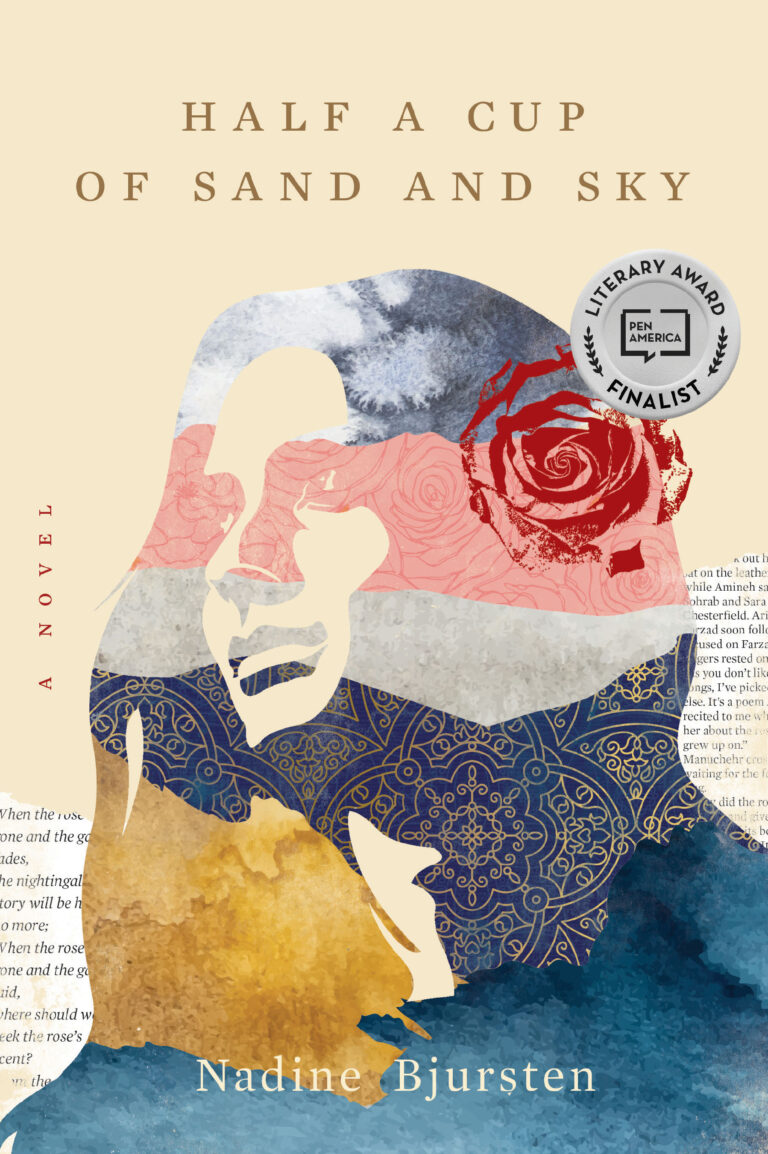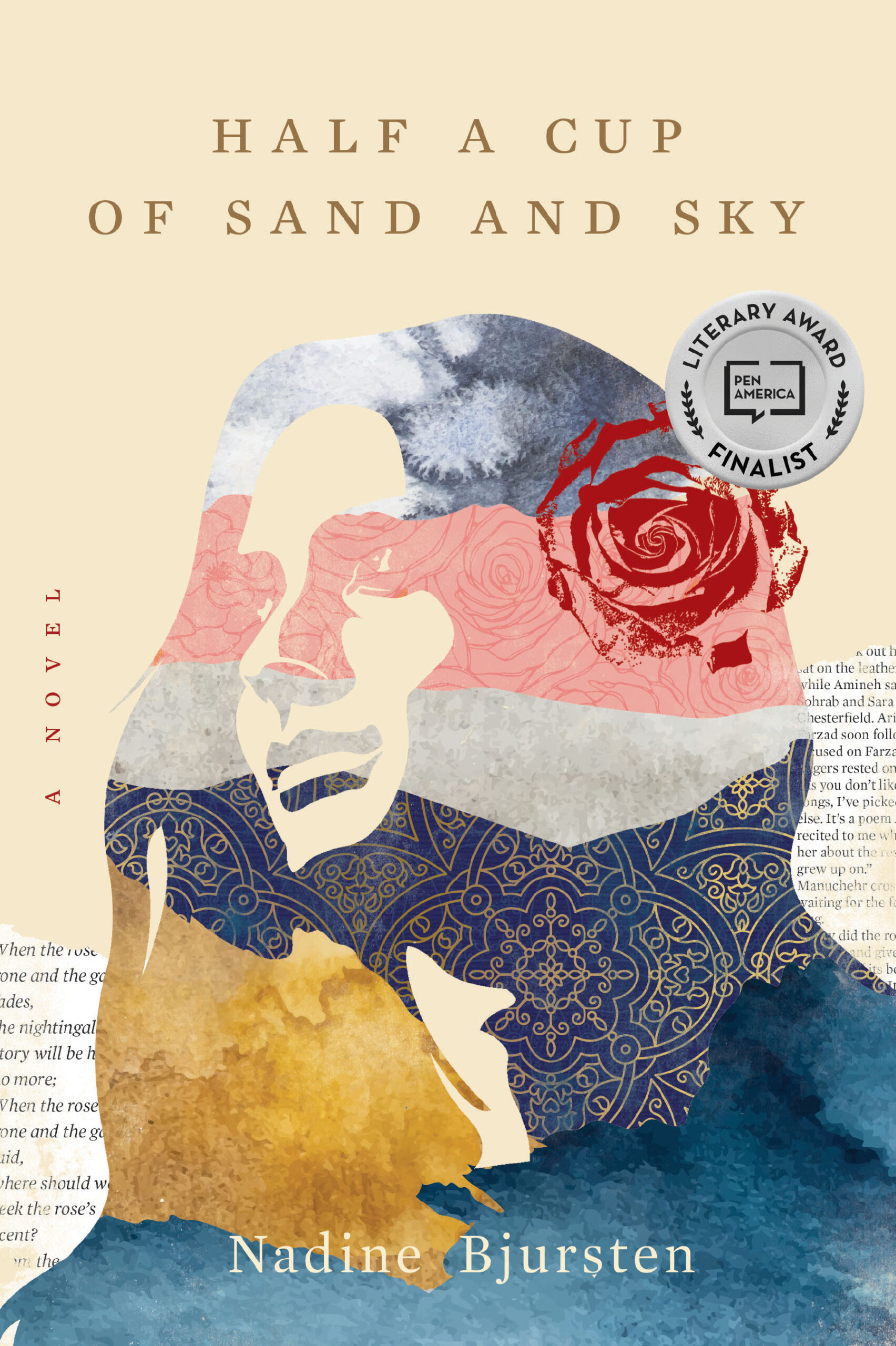Where does the personal end and the political begin—or do lines even exist between them? Can one create art for art’s sake, or must a writer sculpt moral and social messages out of her labors? To what degree are people responsible for the fortunes of those they love? These and many other intriguing questions, large and small, comprise the bones of this rich, compelling novel about a young woman living in Iran during a period of great social upheaval: the 1970s to the early 2000s.
Inevitably, given the timeline, the story encompasses big topics: the effects of increased fundamentalist Islamic dictates in Iran, from the 1979 Hostage Crisis to subjugation of women and schoolbooks in the once-secular country; more nations gaining access to nuclear weapons; and conflicting international “friendships” in the faltering but still-present Cold War. Nadine Bjursten weaves together these topics with beautifully embroidered depictions of small, daily actions and dialogue that deftly dispatches exposition.
In a small Iranian town, protagonist Amineh has grown up in a family that farms and markets roses for purposes the uninitiated might not have considered: rose water, rose jams, use in rose festivals, etc. There is an art to raising roses. Likewise there is an art to beauty, one of a handful of themes underscored throughout the story: “Poetry used to be part of daily life in Iran,” one character notes. Amineh’s move to Tehran and marriage to a prominent activist working toward global disarmament thrusts her into a foreign world, where she increasingly questions her own skills as a writer and value as a person. Changes fly by quickly, at times overwhelming her: “The sand, the water, the sun, the sky, the roses—nothing stood still; everything was ceaselessly reshaping itself.”
Wracked with guilt related to the death of her parents when she was a child, she second-guesses both others’ motives and her own—trying to sort out appearance from unspoken reality in her relationship with her new husband. As the political stakes heighten, so do the novel’s personal ones. Indeed, one of Bjursten’s many skills is her ability to evoke fear and sympathy in the novel’s seemingly less dramatic pitfalls. Will Amineh give in to her desires for her husband’s colleague and best friend? Is her husband having an affair of his own? These and other questions around her family and friends are as worrisome as the story’s threats of assassinations and nuclear war.
Bjursten’s career in journalism shows through her meticulous reportage of intricate data, mostly around nuclear bombs and diplomatic tactics. Furthermore, the impressive breadth of politics and history is rivaled by the depth of detail the author includes. Sometimes there is even too much detail, resulting in excessive documentation of Amineh’s inner worries, slowing down an otherwise powerful narrative. Nevertheless, by the end readers will come away with a deeper understanding of a time, a place, and a people.
Nadine Bjursten’s HALF A CUP OF SAND AND SKY beautifully balances global risks with the stakes of a single woman’s heart, imbuing both with compelling urgency.
~Anne Welsbacher for IndieReader


